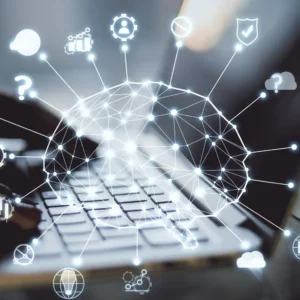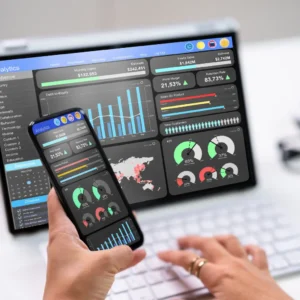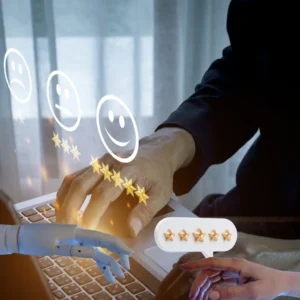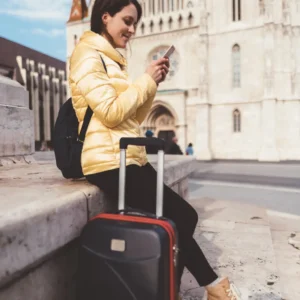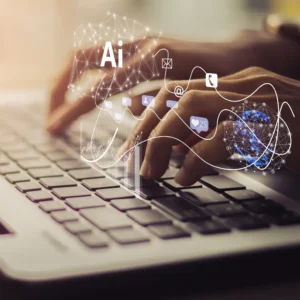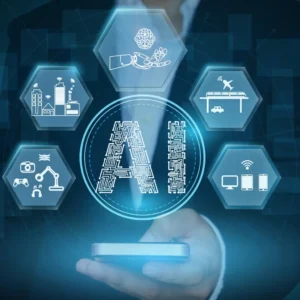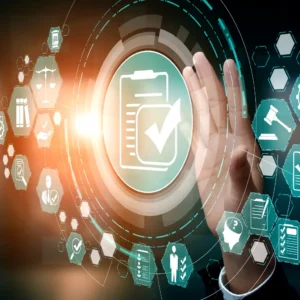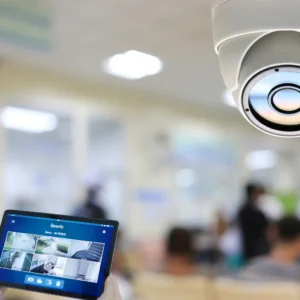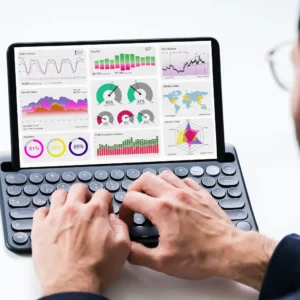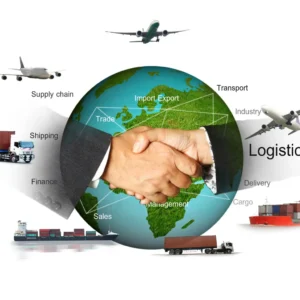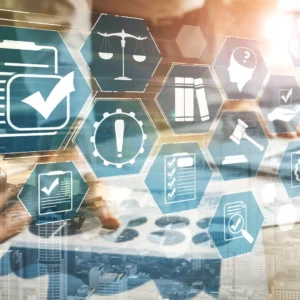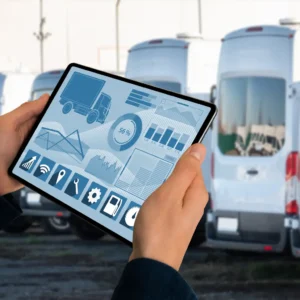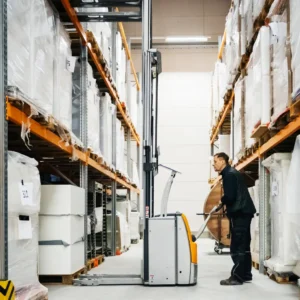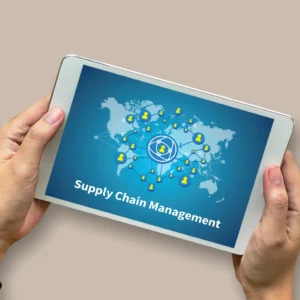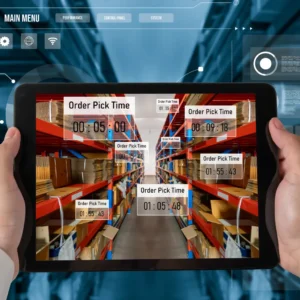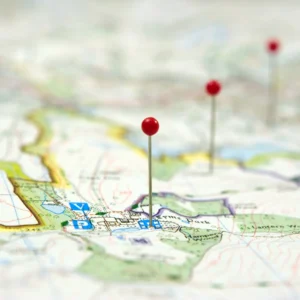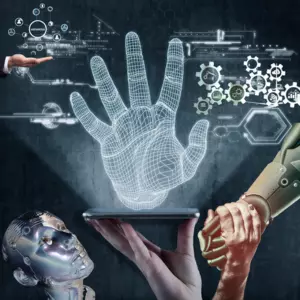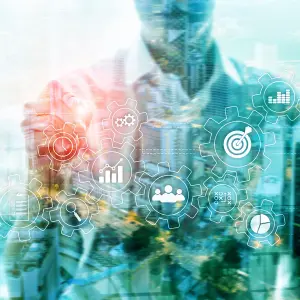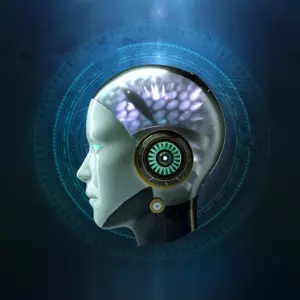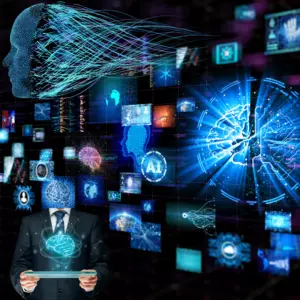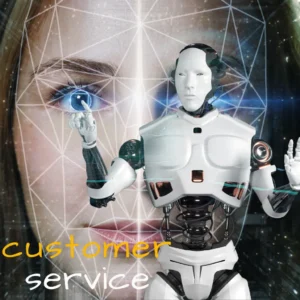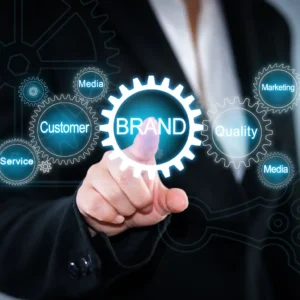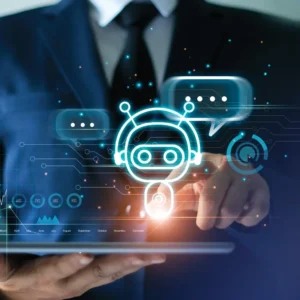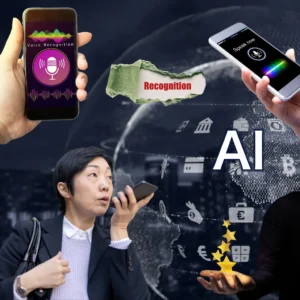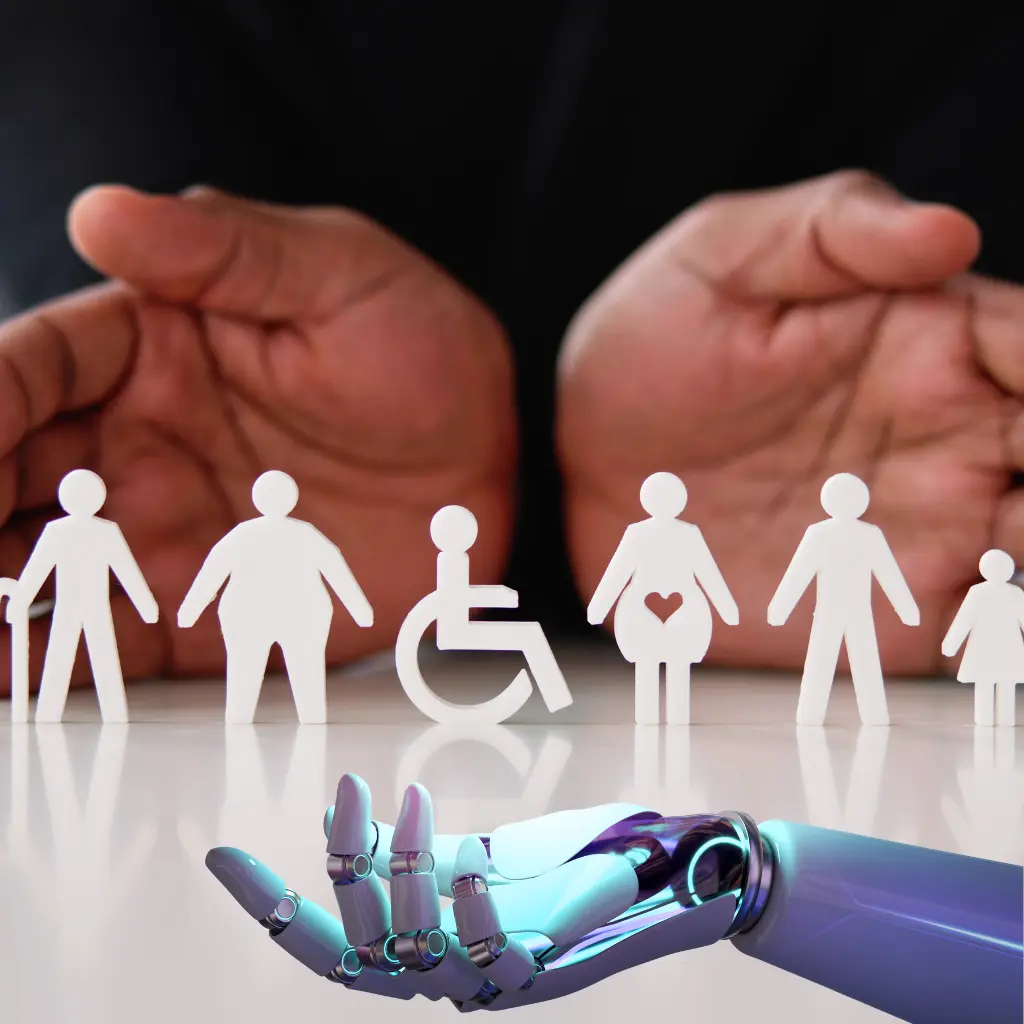
Navigating Tomorrow
AI Tools Transforming Accessibility & Inclusivity in Travel and Hospitality
In the dynamic landscape of the travel and hospitality industry, the integration of AI tools for Accessibility and Inclusivity emerges as a transformative force, revolutionizing how organizations cater to diverse guest needs.
This discussion explores the profound impact of artificial intelligence on enhancing accessibility and inclusivity within the realm of travel and hospitality. From personalized accessibility profiles to AI-guided wayfinding systems and real-time sign language translation, these innovative tools represent a commitment to providing seamless and tailored experiences for guests with varying requirements.
It quickly becomes apparent that AI is more than just a technological innovation; it is a catalyst for creating an environment where each guest feels valued and accommodated as we consider the complex requirements, technological foundations, and strategic considerations.
Table of Contents

Arindam Roy
An Automation Consultant with 25+ years of IT Experience
5 AI tool ideas for the Accessibility and Inclusivity
AI-driven Accessibility Assistance:
- AI Domain: Computer Vision, Natural Language Processing (NLP).
- Benefit: By integrating AI technologies like computer vision and NLP, businesses can enhance accessibility for guests with support needs. This involves providing AI-based assistance to meet the unique needs of people with disabilities for navigation, communication, and personalized services. This improves the overall guest experience and demonstrates a commitment to inclusivity.
Inclusive Design Recommendations:
- AI Domain: Machine Learning.
- Benefit: AI-driven inclusive design recommendations leverage machine learning algorithms to analyze diverse guest needs and preferences. By understanding different requirements, businesses can receive tailored suggestions for designing spaces and services that cater to a wide range of individuals. This proactive approach helps create environments that are inherently more inclusive from the outset.
Real-time Translation for Sign Language:
- AI Domain: Natural Language Processing (NLP).
- Benefit: For guests with hearing impairments, real-time translation for sign language powered by NLP can significantly improve communication. AI algorithms can interpret sign language gestures, enabling seamless interaction between guests and staff. This technology enhances accessibility and ensures that individuals with hearing impairments can effectively communicate and engage in various activities.
AI-guided Wayfinding for Complex Facilities:
- AI Domain: Computer Vision.
- Benefit: AI-guided wayfinding systems use computer vision to assist guests in navigating complex facilities. This is especially helpful for people with difficulty moving around or visual impairments. The AI can analyze real-time data, including the facility’s layout and current conditions, to provide personalized navigation guidance, ensuring guests can quickly and safely reach their destinations.
Personalized Accessibility Profiles:
- AI Domain: Machine Learning.
- Benefit: Creating personalized accessibility profiles involves leveraging machine learning to understand and adapt to individual guest needs. By collecting data on preferences, mobility requirements, and other accessibility considerations, businesses can tailor their services and facilities in real time. This results in a more personalized and inclusive experience for guests, showcasing a commitment to meeting the specific needs of diverse individuals.
AI Tools for AI-driven Accessibility Assistance
Business Knowledge Requirements:
- Hospitality Industry Understanding:
- In-depth knowledge of the hospitality sector, including accommodation facilities, restaurants, and entertainment venues.
- Awareness of regulatory requirements related to accessibility in hospitality.
- Accessibility Standards:
- Familiarity with international accessibility standards (e.g., ADA, WCAG) to ensure compliance.
- Understanding the specific needs of guests with various disabilities and creating solutions that cater to those needs.
- User Experience (UX) Design:
- Expertise in UX design principles, ensuring that AI-driven solutions enhance the overall guest experience for individuals with support needs.
- Knowledge of inclusive design practices to address a wide range of disabilities.
- Communication Strategies:
- Understanding effective communication strategies for individuals with different disabilities.
- Consideration of cultural sensitivity and diverse communication preferences.
Software Knowledge Requirements:
- Computer Vision:
- Proficiency in developing computer vision algorithms for recognizing and interpreting physical environments.
- Implementation of image recognition for navigating spaces and identifying obstacles.
- Natural Language Processing (NLP):
- Expertise in NLP for understanding and generating human-like responses to assist with communication.
- Creation of language models that can interpret and respond to diverse communication methods.
- Mobile App Development:
- Knowledge of mobile app development for creating user-friendly interfaces.
- Integration of AI capabilities seamlessly into mobile applications for accessibility assistance.
Hardware Requirements:
- Camera Systems:
- Implementing camera systems for computer vision applications enables the recognition of physical surroundings.
- Consideration of high-resolution cameras for accurate image recognition.
- Speech Recognition Hardware:
- Integration of hardware components for effective speech recognition in various environments.
- Utilization of microphones with noise-cancelling features for improved accuracy.
Training Required:
- AI Engineers:
- Training in developing and fine-tuning computer vision and NLP models for the unique challenges of hospitality environments.
- Understanding the ethical considerations and biases in AI for inclusivity.
- Hospitality Staff:
- Training on utilizing the AI-driven accessibility assistance tools.
- Sensitization programs to interact effectively and respectfully with guests using the tools.
Integrations Necessary:
- Property Management Systems (PMS):
- Integration with PMS for personalized services based on guest profiles and preferences.
- Real-time updates on room availability and modifications for accessibility.
- Communication Platforms:
- Integration with communication platforms (e.g., messaging apps) for seamless interaction between guests and staff.
- Ensuring compatibility with various communication devices used by guests.
Comparative Tools in the Market:
- Aira:
- Utilizes AI and remote human agents to assist individuals with visual impairments.
- Provides real-time navigation and assistance through a mobile app.
- Be My Eyes:
- This platform facilitates live video calls between sighted volunteers and visually impaired individuals to enhance connectivity.
- Primarily focuses on visual aids.
Recommendation: Build from Scratch
Given AI tools’ unique and specialized requirements for Accessibility & Inclusivity in the Travel and Hospitality Domain, building a solution from scratch is recommended. This ensures tailor-made capabilities that precisely meet the needs of the hospitality industry and its diverse guest requirements.
Cost/Benefits Analysis:
- Costs:
- Development Costs:
- Investment in skilled AI engineers and developers.
- Costs associated with acquiring or developing proprietary algorithms.
- Hardware Costs:
- Expenses related to camera systems, speech recognition hardware, and other necessary components.
- Training Expenses:
- Costs for training AI engineers, hospitality staff, and ongoing sensitization programs.
- Development Costs:
- Benefits:
- Customization:
- Tailored solutions addressing specific needs of the hospitality industry.
- Flexibility to adapt and upgrade based on evolving accessibility standards.
- Brand Differentiation:
- Positioning as a leader in accessibility and inclusivity within the travel and hospitality sector.
- Positive brand image and customer loyalty.
- Long-term Efficiency:
- Continuous improvement and adaptation to emerging technologies and guest requirements.
- Potential for expanding services and features based on industry advancements.
- Customization:
Building from scratch ensures a long-term, sustainable solution that aligns with the commitment to AI tools for Accessibility & Inclusivity in the Travel and Hospitality Domain.
AI Tools for Inclusive Design Recommendations
Business Knowledge Requirements:
- Hospitality Industry Expertise:
- Expert understanding of the travel and hospitality sector, including accommodation, dining, and entertainment.
- Awareness of industry-specific challenges and requirements related to accessibility and inclusivity.
- Inclusive Design Principles:
- Proficiency in inclusive design practices to address various guest needs and preferences.
- Deep understanding of the impact of design choices on the overall guest experience, especially for individuals with diverse abilities.
- User-Centric Approach:
- Knowledge of user experience (UX) methodologies, emphasizing empathy and understanding the needs of diverse user groups.
- Ability to gather and analyze user feedback for continuous improvement.
- Regulatory Compliance:
- Familiarity with accessibility standards and regulations applicable to the travel and hospitality industry.
- Ensuring design recommendations align with international accessibility guidelines (e.g., ADA, WCAG).
Software Knowledge Requirements:
- Machine Learning Algorithms:
- Expertise in machine learning algorithms for predictive modelling and pattern recognition.
- Development of algorithms to analyze user preferences and recommend inclusive design elements.
- Data Analytics Tools:
- Use data analytics tools to process and analyze large datasets, including user feedback and design performance data.
- Implementation of data visualization techniques for interpreting design insights.
- UX Design Software:
- Proficiency in UX design software for creating and visualizing design recommendations.
- Integration of AI-driven recommendations seamlessly into the design workflow.
Hardware Requirements:
- Computational Power:
- Adequate computing resources for running complex machine learning algorithms and processing design data.
- Consideration of cloud-based solutions for scalability and flexibility.
Training Required:
- Data Scientists:
- Training in developing and fine-tuning machine learning models for inclusive design recommendations.
- Understanding ethical considerations and potential biases in AI-driven design suggestions.
- UX Designers:
- Familiarization with the AI tool’s interface for accessing design recommendations.
- Training on integrating AI recommendations into the design process effectively.
Integrations Necessary:
- Design Software Integration:
- Seamless integration with popular design software used in the hospitality industry.
- Compatibility with tools like Adobe Creative Suite, Sketch, or other design platforms.
- User Feedback Systems:
- Integration with systems for collecting and analyzing user feedback on design elements.
- Real-time incorporation of user insights into the AI model for continuous improvement.
Comparative Tools in the Market:
- Access Earth:
- Provides accessibility information and reviews for hotels and other businesses.
- Focuses on user-generated content rather than AI-driven design recommendations.
- IBM Equal Access Toolkit:
- Offers guidelines and resources for designing inclusive digital experiences.
- Primarily a set of tools and guidelines rather than an AI-driven recommendation system.
Recommendation: Build from Scratch
Building the solution from scratch is recommended because of the unique nature of inclusive design recommendations tailored to the travel and hospitality industry. This allows customization to meet the needs of diverse guest populations and align with the industry’s evolving standards.
Cost/Benefits Analysis:
- Costs:
- Development Costs:
- Investment in skilled data scientists and machine learning engineers.
- Costs associated with developing and fine-tuning proprietary algorithms.
- Training Expenses:
- Costs for training data scientists and UX designers on using and integrating the AI tool effectively.
- Development Costs:
- Benefits:
- Customization:
- Tailored solutions addressing the specific design needs of the travel and hospitality industry.
- Flexibility to adapt and upgrade based on evolving accessibility standards.
- Industry Alignment:
- Positioning as a leader in promoting inclusive design within the travel and hospitality sector.
- Positive brand image and customer loyalty are associated with a commitment to accessibility and inclusivity.
- Customization:
Building from scratch ensures a long-term, sustainable solution that precisely meets the requirements of AI tools for Accessibility & Inclusivity in the Travel and Hospitality Domain, fostering a more inclusive and welcoming environment for all guests.
AI Tools for Real-time Translation for Sign Language
Business Knowledge Requirements:
- Hospitality Industry Understanding:
- Deep knowledge of the hospitality sector, including guest communication processes and the diverse needs of individuals with hearing impairments.
- Understanding the legal and ethical compliances related to accessibility in the industry.
- Sign Language Expertise:
- Understanding of various sign languages used globally and their regional nuances.
- Collaboration with sign language interpreters to ensure accurate translations and cultural sensitivity.
- Guest Communication Strategies:
- Proficiency in effective communication strategies for individuals with hearing impairments.
- Awareness of common scenarios in hospitality where real-time sign language translation can enhance the guest experience.
Software Knowledge Requirements:
- Natural Language Processing (NLP):
- Expertise in NLP for real-time analysis and translation of sign language gestures.
- Implementation of language models that understand the context and intricacies of sign language.
- Speech-to-Text (STT) Technology:
- Integration of STT technology to convert spoken language (if any) into text for further NLP analysis.
- Utilization of accurate transcription models for effective communication.
- Mobile App Development:
- Proficiency in mobile app development to deliver real-time translation on portable devices.
- User-friendly interface design for seamless guest interaction.
Hardware Requirements:
- Cameras and Sensors:
- Implementation of high-quality cameras and sensors for capturing sign language gestures accurately.
- Consideration of noise-cancelling microphones for improved speech recognition.
Training Required:
- Sign Language Experts:
- Training the AI model with input from sign language experts to enhance accuracy and cultural appropriateness.
- Continuous training to adapt to new sign language expressions.
- Technical Staff:
- Training on maintaining and troubleshooting hardware components, ensuring continuous functionality.
- Familiarization with the software interface for monitoring and addressing potential issues.
Integrations Necessary:
- Communication Platforms:
- Integration with existing communication platforms (e.g., messaging apps) used in the hospitality industry.
- Compatibility with various devices for seamless communication.
- Guest Service Systems:
- Integrating guest service systems ensures staff knows guests using the real-time translation service.
- Synchronization with reservation and guest profile data for personalized interactions.
Comparative Tools in the Market:
- MotionSavvy UNI:
- Utilizes gesture recognition for American Sign Language (ASL) translation.
- Designed primarily for customer service scenarios.
Recommendation: Build from Scratch
Building the solution from scratch is recommended, considering the unique requirements of real-time sign language translation in the hospitality industry. This allows customization to address specific guest communication scenarios and ensures optimal accuracy.
Cost/Benefits Analysis:
- Costs:
- Development Costs:
- Investment in skilled NLP engineers, developers, and sign language experts.
- Costs associated with developing and fine-tuning proprietary algorithms.
- Hardware Costs:
- Expenses related to high-quality cameras, sensors, and microphones.
- Training Expenses:
- Costs for training sign language experts and technical staff on using and maintaining the AI tool effectively.
- Development Costs:
- Benefits:
- Customization:
- Tailored solutions addressing the hospitality industry’s specific communication needs of guests with hearing impairments.
- Flexibility to adapt and upgrade based on evolving accessibility standards.
- Industry Alignment:
- Positioning as a leader in promoting inclusivity within the travel and hospitality sector.
- Positive brand image and customer loyalty are associated with a commitment to accessibility and inclusivity.
- Customization:
Building from scratch ensures a long-term, sustainable solution that precisely meets the requirements of AI tools for Accessibility & Inclusivity in the Travel and Hospitality Domain, enhancing communication for guests with hearing impairments and contributing to a more inclusive environment.
AI Tools for AI-guided Wayfinding for Complex Facilities
Business Knowledge Requirements:
- Hospitality Industry Understanding:
- Deep knowledge of the travel and hospitality sector, including diverse facility layouts and the impact of navigation on guest experience.
- Awareness of accessibility standards and regulations.
- Guest Behavior Analysis:
- Proficiency in analyzing guest behaviour within complex facilities.
- Understanding common challenges faced by guests with diverse mobility needs.
- Wayfinding Psychology:
- Knowledge of wayfinding principles, including signage effectiveness and user-friendly navigation design.
- Awareness of factors influencing guest decision-making during navigation.
Software Knowledge Requirements:
- Computer Vision:
- Expertise in computer vision algorithms for real-time mapping and object recognition within complex environments.
- Implementation of algorithms for understanding and interpreting floor plans.
- Machine Learning Algorithms:
- Development of machine learning models for predicting guest movement patterns and optimizing wayfinding suggestions.
- Integration with algorithms that consider accessibility requirements.
- Mobile App Development:
- Proficiency in mobile app development for delivering AI-guided wayfinding on guests’ devices.
- User-friendly interface design for seamless navigation.
Hardware Requirements:
- Camera Systems:
- Implementation of camera systems for real-time mapping and monitoring of facility layouts.
- Consideration of high-quality cameras for accurate object recognition.
- Sensors:
- Integration of sensors for detecting guest movement and environmental conditions.
- Use of sensors to enhance accuracy in guiding guests.
Training Required:
- AI Engineers:
- Training in developing and fine-tuning computer vision and machine learning models for complex facility navigation.
- Understanding ethical considerations and biases in AI-guided wayfinding.
- Facility Staff:
- Training on maintaining and troubleshooting hardware components.
- Familiarization with the AI tool’s interface for monitoring and addressing potential issues.
Integrations Necessary:
- Guest Service Systems:
- Integration with guest service systems to personalize wayfinding suggestions based on guest profiles.
- Synchronization with reservation and guest preference data.
- Facility Management Systems:
- Integration with facility management systems for real-time updates on environmental conditions (e.g., crowd density, maintenance alerts).
- Coordination with security systems for a holistic approach to guest safety.
Comparative Tools in the Market:
- Pointr:
- Offers indoor positioning solutions using beacons and smartphone sensors.
- Provides real-time navigation and analytics for large venues.
- Indoo.rs:
- Specializes in indoor navigation using a combination of sensor fusion and machine learning.
- Focuses on customizable solutions for diverse industries.
Recommendation: Build from Scratch
Given the specific requirements of AI-guided wayfinding for complex facilities in the hospitality industry, building the solution from scratch is recommended. This ensures customization to meet the unique needs of different facilities and the diverse accessibility requirements of guests.
Cost/Benefits Analysis:
- Costs:
- Development Costs:
- Investment in skilled computer vision engineers, machine learning experts, and app developers.
- Costs associated with developing and fine-tuning proprietary algorithms.
- Hardware Costs:
- Expenses related to camera systems, sensors, and other necessary components.
- Training Expenses:
- Costs for training AI engineers, facility staff, and ongoing maintenance training.
- Development Costs:
- Benefits:
- Customization:
- Tailored solutions address the specific wayfinding needs of complex facilities in the travel and hospitality sector.
- Flexibility to adapt and upgrade based on evolving accessibility standards.
- Enhanced Guest Experience:
- Improved navigation for all guests, including those with diverse mobility needs.
- Positive impact on guest satisfaction and experience.
- Customization:
Building from scratch ensures a long-term, sustainable solution that precisely meets the requirements of AI tools for Accessibility & Inclusivity in the Travel and Hospitality Domain, contributing to a more accessible and guest-friendly environment.
AI Tools for Personalized Accessibility Profiles
Business Knowledge Requirements:
- Hospitality Industry Understanding:
- In-depth knowledge of the travel and hospitality sector, including various types of accommodations, amenities, and services.
- Understanding the impact of personalized accessibility on guest satisfaction and loyalty.
- Guest Behavior Analysis:
- Proficiency in analyzing guest behaviour and preferences related to accessibility.
- Awareness of typical challenges faced by guests with diverse accessibility needs.
- Legal and Compliance Knowledge:
- Familiarity with accessibility regulations and standards applicable to the travel and hospitality industry.
- Ensuring compliance with local and international accessibility laws.
Software Knowledge Requirements:
- Machine Learning Algorithms:
- Development of machine learning models for creating personalized accessibility profiles.
- Algorithms for analyzing historical data and predicting individual guest preferences.
- Data Analytics Tools:
- Utilization of data analytics tools to process and analyze large datasets, including guest preferences and behaviour.
- Implementation of data visualization techniques for interpreting insights.
- CRM Systems Integration:
- Integration with specialized Customer Relationship Management (CRM) systems for managing and updating guest profiles.
- Utilization of CRM data for personalizing services and facilities.
Hardware Requirements:
- Data Storage:
- Adequate storage capacity for storing and retrieving personalized accessibility profiles.
- Efficient data retrieval capabilities for quick access during guest interactions.
Training Required:
- Data Scientists:
- Training in developing and fine-tuning machine learning models for personalized accessibility predictions.
- Understanding ethical considerations and biases in AI-driven personalization.
- Hospitality Staff:
- Training on utilizing personalized accessibility profiles for delivering customized services.
- Familiarization with the tool’s interface for accessing guest profiles.
Integrations Necessary:
- Reservation Systems:
- Integration with reservation systems to access guest information and preferences.
- Real-time updates to guest profiles based on reservation modifications.
- Service Automation Systems:
- Integration with automation systems for adjusting services and facilities in real time.
- Coordination with staff communication systems for efficient service delivery.
Comparative Tools in the Market:
- Guestfolio:
- Offers guest experience and CRM solutions for hotels.
- Provides tools for personalized guest communication but may not specialize in accessibility.
- Revinate:
- Focuses on guest data and experience management for hotels.
- Offers personalized communication but may not specifically address accessibility needs.
Recommendation: Buy and Customize
Considering the complexity and existing tools available in the market, a recommendation is to buy a reputable tool and customize it to meet the specific needs of the travel and hospitality industry’s accessibility and inclusivity requirements.
Cost/Benefits Analysis:
- Costs:
- Licensing or Subscription Fees:
- Costs associated with subscribing or purchasing to the chosen personalized accessibility tool.
- Customization Costs:
- Expenses for customizing the tool to better align with the unique needs of the travel and hospitality sector.
- Training Expenses:
- Costs for training hospitality staff on using and maximizing the personalized tool.
- Licensing or Subscription Fees:
- Benefits:
- Time Efficiency:
- Rapid deployment of a sophisticated personalized accessibility solution.
- Leveraging proven algorithms and features from an established tool.
- Customization:
- Alignment with the unique demands of the travel and hospitality industry.
- Flexibility to adapt and upgrade based on evolving accessibility standards.
- Improved Guest Experience:
- Enhanced guest satisfaction and loyalty through personalized accessibility profiles.
- Positive impact on the overall reputation and brand image.
- Time Efficiency:
Buying and customizing a tool strikes a balance between leveraging existing technologies and tailoring the solution to meet the specific needs of AI tools for Accessibility & Inclusivity in the Travel and Hospitality Domain, ensuring a cost-effective and efficient implementation.
Conclusion
In conclusion, the development and implementation of AI tools for Accessibility & Inclusivity in the Travel and Hospitality Domain represent a significant stride towards creating a more welcoming and accommodating environment for guests with diverse needs. These AI-powered tools enhance guest experiences with features like wayfinding, real-time sign language translation, and personalized accessibility profiles.
The discussed business knowledge requirements underscore the necessity of deep insights into the intricacies of the travel and hospitality sector, emphasizing the importance of understanding guest behaviours, compliance with accessibility standards, and industry-specific nuances. The software knowledge requirements underline the importance of computer vision, natural language processing (NLP), Python libraries and machine learning (ML) in creating intelligent solutions tailored to unique challenges.
From a hardware perspective, integrating cameras, sensors, and robust computational power demonstrates the commitment to providing seamless, accurate, and real-time solutions. Training programs for AI specialists and hospitality staff further ensure the effective utilization and maintenance of these tools, fostering a culture of inclusivity.
While existing comparative tools offer valuable insights, the recommendation to build, buy, or customize depends on the tool’s alignment with the industry’s needs. The cost/benefits analysis underscores the investment in enhancing guest satisfaction, loyalty, and overall brand image by deploying these cutting-edge AI tools. In essence, AI tools for Accessibility & Inclusivity in the Travel and Hospitality Domain herald a new era of hospitality, where technology plays a pivotal role in ensuring that every guest’s journey is not just a stay but a personalized, inclusive experience.
Related Articles
- AI tools for Emerging Technologies in Travel and Hospitality
- AI tools for Data Analytics and Insights in Hospitality
- AI Tools for Customer Experience and Engagement in Hospitality
- AI Tools for Collaboration and Communication in Hospitality
- AI tools for Marketing and Sales in Hospitality and Travel
- AI Tools for Operations and Efficiency in Hospitality
- AI Tools for Regulatory Compliance and Risk Management
- AI Tools for Safety and Security in Hospitality and Travel
- AI Tools for Sustainability and Environmental Impact
- AI tools in the Travel and Hospitality domain

